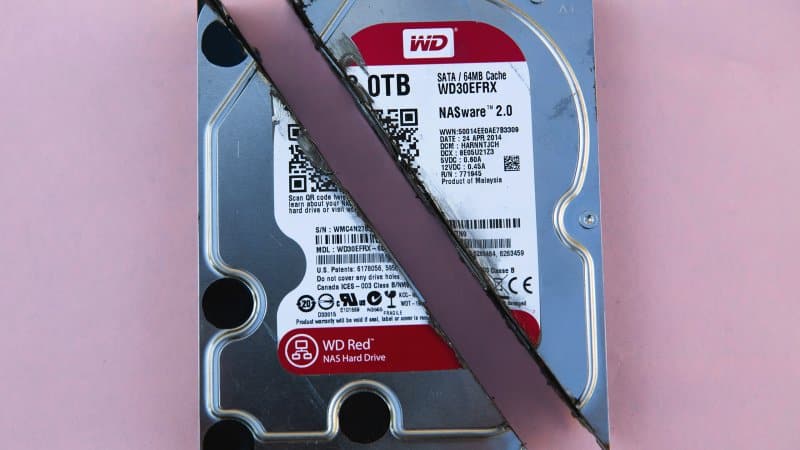
- by J. Peter
Ten major mistakes small businesses make
Everybody makes mistakes, no matter how good you think you are, you are bound to make mistakes and face hardships that can potentially endanger your business and future. The key to success is not in making no mistakes but rather quickly identifying them, learning from them and doing everything in your power to make sure you don’t make the same mistakes again.
In this article we will cover
- Planning for inventory
- Making large personal purchases
- Thinking you can do it all yourself
- Not Keeping backup data and software
- Overlooking small expenses
- Working with no budget / overspending
- Claiming too many tax expenses
- Forgetting to set aside money for taxes
- Mixing business and personal spendings
- Not managing debt

1. Planning for inventory

Although, most of the small businesses are run by intelligent and hardworking entrepreneurs, inventory management can be very complicated and time-consuming, without tools and right people for the job that can help business stay organized, leading to mistakes and wasted money.
To solve problems with inventory management you need to answer these questions first:
- Do you have the right tools?
- Are your employees qualified for the job?
- Are you regularly doing inventory counts and setting orders accordingly?
To solve these and other questions you first need to put standards in your business daily work routine regarding inventory and training of new employees.
Use the right tools
When it comes to right tools for managing your inventory try asking yourself a question: “Is this simplifying everything or not?” . It’s in our nature to try and make everything work with what we have but sometimes we have to remember that it’s the 21st century and most, if not all, work can be simplified by technology. Sortly is an example of inventory management software that simplifies the process in many ways. Giving you notification when a product is running low in warehouse, to create fast and reliable reports that you can use to research statistics and make estimates for more accurate future orders. Use of software like this is suitable across wide industries that have medical, IT, equipment or even product inventories.
Train your staff
To maximize productivity of your staff and to avoid mistakes regarding inventory you should consider organizing regular trainings for all employees since the day #1 they are hired. Everything takes time and patience. Not everyone is born with knowledge on how to operate your newest high tech inventory management software you might have installed just recently. Give all employees proper training of all matter regarding software use in weekly/monthly training sessions.
Make a system
Simply by counting inventory frequently you can identify problems in inventory early on and try to find solutions to problems that could potentially harm your business by not having a product when customer places an order or by having ordered too much based on wrongly counted inventory. Either way you lose something, by ordering too much you simply freeze money – by too little you can lose customers. By setting orders according to the newest data you can save time, money and potential customers from leaving disappointed.
“Control the inventory – Control the profits.”
– Joseph Brandt
2. Making large personal purchases

No business ever goes smoothly, sometimes leading you to scenarios forcing you to dip into your personal funds to pay for business needs.
This could be simply to pay the bills in time without getting unnecessary expenses of missed payment %’s or money that you could have used to take your marketing to next level with your new marketing campaign which could potentially double your income.
Be patient and don’t rush just yet to buy yourself a lamborghini and a new house by the beach from your first successful deal. In many cases, especially early on in the business life you may come up with unexpected problems, meaning you won’t be able to pay yourself and your employees and might have to sell things to cover your business needs.
“If you buy things you don’t need, soon you will have to sell things you need.”
– Warren Buffet
3. Thinking you can do it all yourself

It’s in most entrepreneur spirits to try and do everything themselves. They know everything about their job/product and are willing to go 100% in with maximum passion. “Who else is going to do the job as it needs to be done? “ — is the question every entrepreneur asks themselves. Turns out it’s not the best way to do work. It’s a great recipe for burnout and you don’t want that.
To avoid burnout you should learn how to delegate, hire and try to outsource what you can to split responsibilities and free up your time for more important tasks.
If you have no options where you could look for experienced employees try out tools such as LinkedIn or Craigslist to find experienced people you could hire.
Get other people to help you and in time you will see your productivity increase alongside with revenue.
“Master your strengths, outsource your weaknesses.”
– Ryan Khan
Founder of The Hired Group
4. Not Keeping backup data and software

Why backups are important?
Having backups ready to go when needed is essential for facing challenges and problems in business especially early on. You can look at it as a safety net and if you don’t have it you can fall hard.
If you have no idea where you should make necessary adjustments or improvements try asking yourself these questions:
- Am i doing backups regularly?
- Have i tested my backups if they work?
- Am i diversifying backup media to protect it against damage?
Doing backups regularly
This is one of if not the most important aspect of doing backups and the core reason behind it is to have most recent saved data retrieved in case of data loss, natural catastrophe or malware destroying your computer.
Make sure to put systems in place. They all can be automated with newest software to make backups every few hours/days or any other time necessary. A good example would be Acronis True Image backup software. You can make full disk backups with fast performance and active file protection. With Acronis you can set up local and cloud backup saving for more safety in case of data loss.
Test them if they are restored properly
It’s advised to check backups from time to time if they are being saved properly and are healthy (if no data is missing). Anything can happen. Imagine your main data storage device dies completely and then you find out your backup media device is full and haven’t made any backups for months. Always check and read backup reports and alerts because they might be important.
Make backups to backups
It sounds crazy but anything can happen and being ready for the worst can save you a bunch of money. Most of the newest backup softwares offer your backups to be saved in cloud storage and local device at the same time but the problem most could have with this is the price tag. If you don’t have a large budget and if you don’t have to save backups of hundreds of computers and you don’t want to spend on expensive backup software you can use simple external hard drive in combination with google drive to store your backups or other free alternatives.
“Plan B. You’ve always got to have a Plan B.”
– Sylvester Stallone
5. Overlooking small expenses

No matter if it’s 1$ , 50$, 500$ or 20’000$ you should consider recording all transactions no matter small or big, by cash or credit card. Money is still money.
An effective way would be to use only one business credit card to pay for all business expenses. If you will focus on using only one kind of payment method you will have less of a struggle tracking your expenses. Always keep receipts, small or big, save them all or copy them. Every dollar adds up. Don’t forget that. Especially if you are just starting your ventures as a business owner.
“Beware of little expenses. A small leak will sink a great ship.”
– Benjamin Franklin
6. Working with no budget / overspending

The greatest mistake in business of all time
is having no budget
Do you have a budget plan?
Creating a budget plan means analyzing your income and setting boundaries on how much you can spend or invest. Keeping budget organized can have many benefits. You will be able to plan and make informed decisions about all your business matters including supplies, utilities , inventory and much more.
Just don’t make your budget plan too strict, leave some place for flexibility as anything can happen and if not you won’t lose anything. Try out some of the budget planning programs like Adaptive Insights or Centage that can simplify everything for you.
Overspending on ‘nice-to-have’
Many entrepreneurs who get their first taste of money and success will sometimes go crazy on their spending thinking that they can pay for everything now and that the money will never run out. Most of the choices such as expensive trips, hotels, spa and meals or huge office with the newest mac’s when business has just made its first money is reckless and can lead to credit card debt. Most of the things bought oftentimes don’t add any value to your business, for example, any computer would work just as good in your office no matter if it’s $400 or $1000. Think wisely before spending any huge amount of your early income.
“Budgeting is telling your money where to go instead of wondering where it went.”
– Dave Ramsey
7. Claiming too many tax deductions

Yes it is possible to claim too many tax deductions and people are making this mistake very often.
If the IRS determines you willfully took deductions you weren’t entitled to, that is, in an attempt to defraud the government, you’ll be subject to much stiffer penalties. In addition to the tax you owe, you could be assessed a penalty of 74% of this amount, plus interest payments figured from the day you filed your taxes. Serious fraud in large amounts could lead to you being charged with tax evasion. You could do time in prison and/or have your property confiscated by the government. Read More
Every business has business expenses, either software, computers, utilities, travel or anything else necessary for business operations and growth. Being able to deduct those expenses can reduce regular income tax and in single person operated business self-employment tax. Being able to account for all expenses can have a great deal of reducing taxes which can in turn give you more money for growth.
There are two main distinct expenses every business owner has (Business and Personal) and three kinds of business expenses (Cost of goods sold, Capital expenses and Deductible expenses)
Cost of goods sold
Cost of goods sold are expenses of inventory and everything related to inventory necessary for business operations either reselling products or making products which you have to track and record.
According to IRS on cost of goods sold general rule states: “If your business manufactures products or purchases them for resale, you generally must value inventory at the beginning and end of each tax year to determine your cost of goods sold. Some of your business expenses may be included in figuring the cost of goods sold” (IRS, Publication 535, Business Expenses)
Capital Expenses
Anything that your business expects that will generate revenue years after purchase is called an asset. The IRS sees capital expenses as investments in your business therefore the business can’t just simply deduct money spent on the asset from it’s gross income because the money hasn’t really left the business but transformed into an asset that in time can generate income.
Typically deductions for capital expenses occur over several years, except where Section 179 applies where the deduction in spread over multiple years. This section allows businesses to deduct expenses that the IRS would normally consider capital expenses as if they are current expenses. But not exceeding total income for that year.
Deductible expenses
To be deductible, a business expense must be both ordinary and necessary. An ordinary expense is common expense in business accepted by general industry standards. This means they are absolutely necessary and needed for business operation.
A necessary expense is useful and helpful in business operation and it also has to be ordinary to be deductible.
Deductible expenses:
- Rent expense
- Interest
- Taxes
- Insurance
- Employees pay
- Legal and professional fees
- Home office
- Education
And others. Read More
Expenses you can’t deduct
Political donations – you can get deductions if your business donates to registered 501(c)3 charity. If you donate to a political party or candidate these expenses aren’t deductible.
Parking tickets and other penalties – even while traveling for business needs.
Business clothes – unless it’s a uniform or protective equipment. Clothes or shoes but to wear at work are not deductible.
Eating out – if you take your client to business lunch you may deduct only half of the cost as meals and entertainment expense, however if it’s just for you it’s not deductible as it is not a business expense.
Child Support Payments – If you receive child support payments, they won’t count as taxable income. And also if you’re paying child support, you can’t get an extra deduction. Alimony payments, on the other hand, are always deductible if they’re made while a couple is legally separated or divorced.
And others.
Attempting to fraud the government by sneaking in a non-deductible expense when you file your taxes is a very bad idea. If you get audited and you can’t prove that your deductions are valid (necessary, ordinary and documented), you could end up having to pay additional taxes, penalties and interest in some cases even go to prison for tax evasion.
“The best things in life are tax free.”
– Joseph Bonkowski
8. Forgetting to set aside money for taxes

Business owners are often times very busy and not usually focused on taxes and accounting but rather on other activities that can generate revenue. The moment money starts rolling in the bank account they forget to set money aside for taxes and starts spending without a second thought.
Make sure to meet regularly with your accountant (if you don’t have one, it’s advised to get one) and set aside money for taxes. Suggested amount is between 25 and 35% of your earnings. As it can never be too much and if it’s not spent on tax bill, money can serve other purposes or stay in the account for future bills.
An effective way to make sure that you save money for taxes is to open a savings account for your tax bill and transfer 25 to 35 % of your income every month or any other time frame to this account and don’t touch it until you receive the tax bill and it’s time to pay. It’s not a good feeling to receive a good sized tax bill at the end of the year simply because you forgot about it. In many cases people can’t pay the bill which in turn generate interest and make everything worse. So, don’t forget to set money aside for taxes and your business will thank you.
“Our new Constitution is now established, everything seems to promise it will be durable; but, in this world, nothing is certain except death and taxes.”
–Benjamin Franklin
9. Mixing business and personal spendings

By mixing business and personal expenses, you can get your business in a lot of trouble from IRS, if you aren’t documenting expenses properly and can’t prove that they are legitimate expenses.
Business expenses by IRS are defined as necessary and ordinary costs of carrying on your trade or business. If you use your business card to buy and spend on personal things and deduct those expenses as business expenses you are reducing your taxable income by amount of those expenses. This is a distinct way to improperly reduce your tax liability and draw attention from IRS. Sometimes you may end up mixing legitimate business expenses by paying with your personal account and lose a chance to deduct those expenses.
It’s unprofessional
If you have business partners or clients and you need to write them checks and you use your name instead of Business , it signals that you are not a serious business venture. Take your business seriously and your clients will too. Don’t be afraid to open business account as the business account fees are partly deductible and separates your business from personal expenses making it less of a headache to document your expenses properly.
“You can have a Masters degree in making money,
but you will still wind up broke if you have a PhD in spending it.”
– Orrin Woodward
10. Not managing debt

Stop making credit card charges
If you use your credit card while in debt you will keep digging and prolonging your debt of being paid off. When you can’t control your spending impulses and don’t know what to do, consider cancelling your card or hiding it, maybe give it to a friend so you can’t use it.
Paying only the minimum amount is one of the worst things you can do to your business while in debt, second to skipping payments at all. By paying only minimum payments you will end up paying much more in the long run.
Try to put together a solid plan. Count all your debts, the status of your accounts and how much you owe in total. Make a plan for monthly payments, then choose debt and destroy it with either snowball or avalanche method which focuses on one main debt while paying minimal payments to others.
“Credit buying is much like being drunk. The buzz happens immediately, and it gives you a lift. The hangover comes the day after.”
– Joyce Brothers
Conclusion
To have success in business is to win in a game in which all the rules are hidden. Only if you have the right tools to find these rules and make them work for you, only then you will find success. Learn, think, observe, listen, process and react. Be patient and educate yourself in order to be able to make the best, well planned decisions to guide your business towards future and success.
Thanks for reading.
Must Read
Disclosure: Some of the links within this post are affiliate links of which I receive a small compensation from sales of certain items.


